〔資料〕
「Text of President Obama’s Speech in Hiroshima, Japan」
NYタイムズ(MAY 27, 2016 )
☆ 記事URL:http://www.nytimes.com/2016/05/28/world/asia/text-of-president-obamas-speech-in-hiroshima-japan.html?smid=tw-share&_r=0
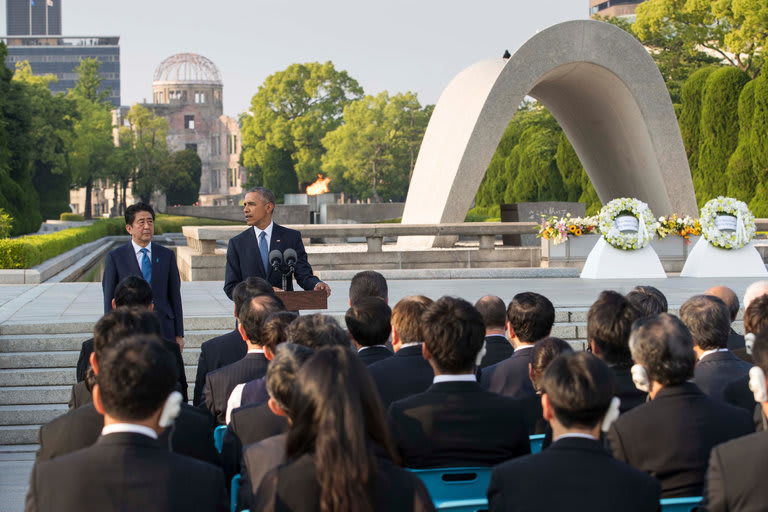
President Obama spoke after a wreath-laying ceremony with Prime Minister Shinzo Abe of Japan at the Hiroshima Peace Memorial on Friday. Credit Doug Mills/The New York Times
The following is a transcript of President Obama’s speech in Hiroshima, Japan, as recorded by The New York Times.
Seventy-one years ago, on a bright cloudless morning, death fell from the sky and the world was changed. A flash of light and a wall of fire destroyed a city and demonstrated that mankind possessed the means to destroy itself.
Why do we come to this place, to Hiroshima? We come to ponder a terrible force unleashed in a not-so-distant past. We come to mourn the dead, including over 100,000 Japanese men, women and children, thousands of Koreans, a dozen Americans held prisoner.
Their souls speak to us. They ask us to look inward, to take stock of who we are and what we might become.
It is not the fact of war that sets Hiroshima apart. Artifacts tell us that violent conflict appeared with the very first man. Our early ancestors having learned to make blades from flint and spears from wood used these tools not just for hunting but against their own kind. On every continent, the history of civilization is filled with war, whether driven by scarcity of grain or hunger for gold, compelled by nationalist fervor or religious zeal. Empires have risen and fallen. Peoples have been subjugated and liberated. And at each juncture, innocents have suffered, a countless toll, their names forgotten by time.
The world war that reached its brutal end in Hiroshima and Nagasaki was fought among the wealthiest and most powerful of nations. Their civilizations had given the world great cities and magnificent art. Their thinkers had advanced ideas of justice and harmony and truth. And yet the war grew out of the same base instinct for domination or conquest that had caused conflicts among the simplest tribes, an old pattern amplified by new capabilities and without new constraints.
In the span of a few years, some 60 million people would die. Men, women, children, no different than us. Shot, beaten, marched, bombed, jailed, starved, gassed to death. There are many sites around the world that chronicle this war, memorials that tell stories of courage and heroism, graves and empty camps that echo of unspeakable depravity.
Continue reading the main story
Yet in the image of a mushroom cloud that rose into these skies, we are most starkly reminded of humanity’s core contradiction. How the very spark that marks us as a species, our thoughts, our imagination, our language, our toolmaking, our ability to set ourselves apart from nature and bend it to our will — those very things also give us the capacity for unmatched destruction.
How often does material advancement or social innovation blind us to this truth? How easily we learn to justify violence in the name of some higher cause.
Every great religion promises a pathway to love and peace and righteousness, and yet no religion has been spared from believers who have claimed their faith as a license to kill.
Nations arise telling a story that binds people together in sacrifice and cooperation, allowing for remarkable feats. But those same stories have so often been used to oppress and dehumanize those who are different.
Science allows us to communicate across the seas and fly above the clouds, to cure disease and understand the cosmos, but those same discoveries can be turned into ever more efficient killing machines.
The wars of the modern age teach us this truth. Hiroshima teaches this truth. Technological progress without an equivalent progress in human institutions can doom us. The scientific revolution that led to the splitting of an atom requires a moral revolution as well.
That is why we come to this place. We stand here in the middle of this city and force ourselves to imagine the moment the bomb fell. We force ourselves to feel the dread of children confused by what they see. We listen to a silent cry. We remember all the innocents killed across the arc of that terrible war and the wars that came before and the wars that would follow.
Mere words cannot give voice to such suffering. But we have a shared responsibility to look directly into the eye of history and ask what we must do differently to curb such suffering again.
Some day, the voices of the hibakusha will no longer be with us to bear witness. But the memory of the morning of Aug. 6, 1945, must never fade. That memory allows us to fight complacency. It fuels our moral imagination. It allows us to change.
And since that fateful day, we have made choices that give us hope. The United States and Japan have forged not only an alliance but a friendship that has won far more for our people than we could ever claim through war. The nations of Europe built a union that replaced battlefields with bonds of commerce and democracy. Oppressed people and nations won liberation. An international community established institutions and treaties that work to avoid war and aspire to restrict and roll back and ultimately eliminate the existence of nuclear weapons.
Still, every act of aggression between nations, every act of terror and corruption and cruelty and oppression that we see around the world shows our work is never done. We may not be able to eliminate man’s capacity to do evil, so nations and the alliances that we form must possess the means to defend ourselves. But among those nations like my own that hold nuclear stockpiles, we must have the courage to escape the logic of fear and pursue a world without them.
We may not realize this goal in my lifetime, but persistent effort can roll back the possibility of catastrophe. We can chart a course that leads to the destruction of these stockpiles. We can stop the spread to new nations and secure deadly materials from fanatics.
And yet that is not enough. For we see around the world today how even the crudest rifles and barrel bombs can serve up violence on a terrible scale. We must change our mind-set about war itself. To prevent conflict through diplomacy and strive to end conflicts after they’ve begun. To see our growing interdependence as a cause for peaceful cooperation and not violent competition. To define our nations not by our capacity to destroy but by what we build. And perhaps, above all, we must reimagine our connection to one another as members of one human race.
For this, too, is what makes our species unique. We’re not bound by genetic code to repeat the mistakes of the past. We can learn. We can choose. We can tell our children a different story, one that describes a common humanity, one that makes war less likely and cruelty less easily accepted.
We see these stories in the hibakusha. The woman who forgave a pilot who flew the plane that dropped the atomic bomb because she recognized that what she really hated was war itself. The man who sought out families of Americans killed here because he believed their loss was equal to his own.
My own nation’s story began with simple words: All men are created equal and endowed by our creator with certain unalienable rights including life, liberty and the pursuit of happiness. Realizing that ideal has never been easy, even within our own borders, even among our own citizens. But staying true to that story is worth the effort. It is an ideal to be strived for, an ideal that extends across continents and across oceans. The irreducible worth of every person, the insistence that every life is precious, the radical and necessary notion that we are part of a single human family — that is the story that we all must tell.
That is why we come to Hiroshima. So that we might think of people we love. The first smile from our children in the morning. The gentle touch from a spouse over the kitchen table. The comforting embrace of a parent. We can think of those things and know that those same precious moments took place here, 71 years ago.
Those who died, they are like us. Ordinary people understand this, I think. They do not want more war. They would rather that the wonders of science be focused on improving life and not eliminating it. When the choices made by nations, when the choices made by leaders, reflect this simple wisdom, then the lesson of Hiroshima is done.
The world was forever changed here, but today the children of this city will go through their day in peace. What a precious thing that is. It is worth protecting, and then extending to every child. That is a future we can choose, a future in which Hiroshima and Nagasaki are known not as the dawn of atomic warfare but as the start of our own moral awakening.
〔資料-2〕
「オバマ大統領の広島スピーチ和訳・全文 『核保有国は、恐怖の論理から逃れるべきだ』」
The Huffington Post | 執筆者: 吉川慧さん ( 2016年05月27日 19時45分 JST )
☆ 記事URL:http://www.huffingtonpost.jp/2016/05/27/obama-begins-visit-to-hiroshima_n_10160172.html
■オバマ大統領「広島と長崎が教えてくれたのです」
71年前の明るく晴れ渡った朝、空から死神が舞い降り、世界は一変しました。閃光と炎の壁がこの街を破壊し、人類が自らを破滅に導く手段を手にしたことがはっきりと示されたのです。
なぜ私たちはここ、広島に来たのでしょうか?
私たちは、それほど遠くないある過去に恐ろしい力が解き放たれたことに思いをはせるため、ここにやって来ました。
私たちは、10万人を超える日本の男性、女性、そして子供、数多くの朝鮮の人々、12人のアメリカ人捕虜を含む死者を悼むため、ここにやって来ました。
彼らの魂が、私たちに語りかけています。彼らは、自分たちが一体何者なのか、そして自分たちがどうなったのかを振り返るため、内省するようにに求めています。
広島だけが際立って戦争を象徴するものではありません。遺物を見れば、暴力的な衝突は人類の歴史が始まった頃からあったことがわかります。フリント(編注・岩石の一種)から刃を、木から槍を作るようになった私たちの初期の祖先は、それらの道具を狩りのためだけでなく、自分たち人類に対しても使ったのです。
どの大陸でも、文明の歴史は戦争で満ちています。戦争は食糧不足、あるいは富への渇望から引き起こされ、民族主義者の熱狂や宗教的な熱意でやむなく起きてしまいます。
多くの帝国が勃興と衰退を繰り返しました。多くの人間が隷属と解放を繰り返しました。そして、それぞれの歴史の節目で、罪のない多くの人たちが、数えきれないほどの犠牲者を生んだこと、そして時が経つに連れて自分たちの名前が忘れ去られたことに苦しめられました。
広島と長崎で残酷な終焉へと行き着いた第二次世界大戦は、最も裕福で、もっとも強大な国家たちの間で戦われました。そうした国の文明は、世界に大都市と優れた芸術をもたらしました。そうした国の頭脳たちは、正義、調和、真実に関する先進的な思想を持っていました。にもかかわらず、支配欲あるいは征服欲といった衝動と同じ衝動から、戦争が生まれたのです。そのような衝動が、極めて単純な部族間同士の衝突を引き起こし、新たな能力によって増幅され、新たな制限のないお決まりのパターンを生んでしまったのです。
数年の間に、およそ6000万人もの人たちが亡くなりました。男性、女性、子供、私たちと何ら違いのない人たちがです。射殺され、撲殺され、行進させられて殺され、爆撃で殺され、獄中で殺され、餓死させられ、毒ガスで殺されました。世界中に、この戦争を記録する場所が数多くあります。それは勇気や勇敢な行動を綴った記念碑、言葉では言い表せないような卑劣な行為の名残でもある墓地や空っぽの収容所といったものです。
しかし、この空に立ち上ったキノコ雲の映像を見た時、私たちは人間の中核に矛盾があることを非常にくっきりとした形で思い起こすのです。
私たちの思考、想像力、言語、道具を作る能力、そして人間の本質と切り離して自分たちを定めたり、自分たちの意志に応じてそうした本質を曲げたりする能力といったものを私たちが人類として際立たせること――まさにそうしたことも類を見ない破滅をもたらすような能力を私たちに与えられることによって、どれだけ悲劇をもたらす誘発剤となってしまうか。
物質的な進歩、あるいは社会的な革新によって、どれだけ私たちはこうした真実が見えなくなってしまうのか。
より高い信念という名の下、どれだけ安易に私たちは暴力を正当化してしまうようになるのか。
どの偉大な宗教も、愛や平和、正義への道を約束します。にもかかわらず、信仰こそ殺人許可証であると主張する信者たちから免れられないのです。
国家は犠牲と協力で人々が団結するストーリーをこしらえ、優れた功績を認めるようになります。しかし、自分たちとは違う人々を抑圧し、人間性を奪うため、こうしたものと同様のストーリーが頻繁に利用されたのです。
科学によって、私たちは海を越えて交信したり雲の上を飛行したりできるようになり、あるいは病気を治したり宇宙を理解したりすることができるようになりました。しかし一方で、そうした発見はより効率的な殺人マシンへと変貌しうるのです。
現代の戦争が、こうした現実を教えてくれます。広島が、こうした現実を教えてくれます。
技術の進歩が、人間社会に同等の進歩をもたらさないのなら、私たち人間に破滅をもたらすこともあります。原子の分裂へとつながった科学的な変革には、道徳的な変革も求められます。
だからこそ、私たちはこの場所に来るのです。
私たちは、この街の中心に立ち、勇気を奮い起こして爆弾が投下された瞬間を想像します。
私たちは、目の当たりにしたものに混乱した子どもたちの恐怖に思いを馳せようとします。
私たちは、声なき叫び声に耳を傾けます。
私たちは、あの悲惨な戦争が、それ以前に起きた戦争が、それ以後に起きた戦争が進展していく中で殺されたすべての罪なき人々を追悼します。
言葉だけでは、こうした苦しみに言葉に表すことはできません。しかし私たちは、歴史を直視するために共同責任を負います。そして、こうした苦しみを二度と繰り返さないためにどうやってやり方を変えなければならないのかを自らに問わなければなりません。
いつの日か、証言する被爆者の声が私たちのもとに届かなくなるでしょう。しかし、1945年8月6日の朝の記憶を決して薄れさせてはなりません。その記憶があれば、私たちは現状肯定と戦えるのです。その記憶があれば、私たちの道徳的な想像力をかき立てるのです。その記憶があれば、変化できるのです。
あの運命の日以来、私たちは自らに希望をもたらす選択をしてきました。
アメリカと日本は同盟関係だけでなく、友好関係を構築しました。それは私たち人間が戦争を通じて獲得しうるものよりも、はるかに多くのものを勝ち取ったのです。
ヨーロッパ各国は、戦場を交易と民主主義の結びつきを深める場に置き換える連合を構築しました。抑圧された人々と国々は解放を勝ち取りました。国際社会は戦争を防ぎ、核兵器の存在を制限し、縮小し、究極的には廃絶するために機能する組織と条約をつくりました。
それでもなお、世界中で目にするあらゆる国家間の侵略行為、あらゆるテロ、そして腐敗と残虐行為、そして抑圧は、私たちのやることに終わりがないことを示しています。
私たちは、人間が邪悪な行いをする能力を根絶することはことはできないかもしれません。だから、国家や私たちが構築した同盟は、自らを守る手段を持たなければなりません。しかし、私の国のように核を保有する国々は、勇気を持って恐怖の論理から逃れ、核兵器なき世界を追求しなければなりません。
私が生きている間にこの目的は達成できないかもしれません。しかし、その可能性を追い求めていきたいと思います。このような破壊をもたらすような核兵器の保有を減らし、この「死の道具」が狂信的な者たちに渡らないようにしなくてはなりません。
それだけでは十分ではありません。世界では、原始的な道具であっても、非常に大きな破壊をもたらすことがあります。私たちの心を変えなくてはなりません。戦争に対する考え方を変える必要があります。紛争を外交的手段で解決することが必要です。紛争を終わらせる努力をしなければなりません。
平和的な協力をしていくことが重要です。暴力的な競争をするべきではありません。私たちは、築きあげていかなければなりません。破壊をしてはならないのです。なによりも、私たちは互いのつながりを再び認識する必要があります。同じ人類の一員としての繋がりを再び確認する必要があります。つながりこそが人類を独自のものにしています。
私たち人類は、過去で過ちを犯しましたが、その過去から学ぶことができます。選択をすることができます。子供達に対して、別の道もあるのだと語ることができます。
人類の共通性、戦争が起こらない世界、残虐性を容易く受け入れない世界を作っていくことができます。物語は、被爆者の方たちが語ってくださっています。原爆を落としたパイロットに会った女性がいました。殺されたそのアメリカ人の家族に会った人たちもいました。アメリカの犠牲も、日本の犠牲も、同じ意味を持っています
アメリカという国の物語は、簡単な言葉で始まります。すべての人類は平等である。そして、生まれもった権利がある。生命の自由、幸福を希求する権利です。しかし、それを現実のものとするのはアメリカ国内であっても、アメリカ人であっても決して簡単ではありません。
しかしその物語は、真実であるということが非常に重要です。努力を怠ってはならない理想であり、すべての国に必要なものです。すべての人がやっていくべきことです。すべての人命は、かけがえのないものです。私たちは「一つの家族の一部である」という考え方です。これこそが、私たちが伝えていかなくてはならない物語です。
だからこそ私たちは、広島に来たのです。そして、私たちが愛している人たちのことを考えます。たとえば、朝起きてすぐの子供達の笑顔、愛する人とのキッチンテーブルを挟んだ優しい触れ合い、両親からの優しい抱擁、そういった素晴らしい瞬間が71年前のこの場所にもあったのだということを考えることができます。
亡くなった方々は、私たちとの全く変わらない人たちです。多くの人々がそういったことが理解できると思います。もはやこれ以上、私たちは戦争は望んでいません。科学をもっと、人生を充実させることに使ってほしいと考えています。
国家や国家のリーダーが選択をするとき、また反省するとき、そのための知恵が広島から得られるでしょう。
世界はこの広島によって一変しました。しかし今日、広島の子供達は平和な日々を生きています。なんと貴重なことでしょうか。この生活は、守る価値があります。それを全ての子供達に広げていく必要があります。この未来こそ、私たちが選択する未来です。未来において広島と長崎は、核戦争の夜明けではなく、私たちの道義的な目覚めの地として知られることでしょう。
【追記 2016/5/28 9:40 訳文を修正しました】










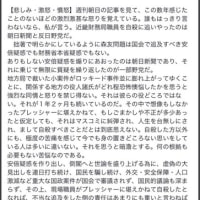
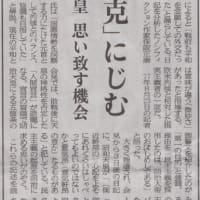
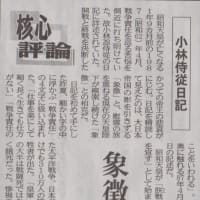
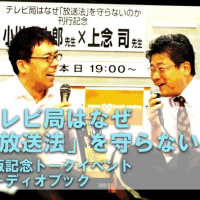
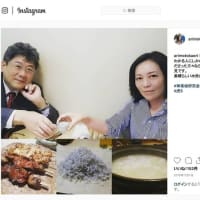
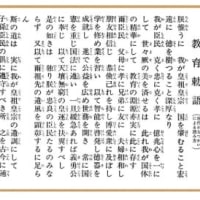

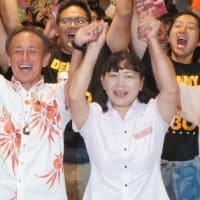
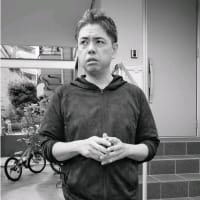
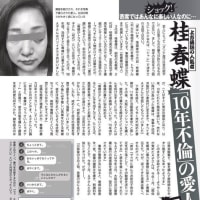
※コメント投稿者のブログIDはブログ作成者のみに通知されます